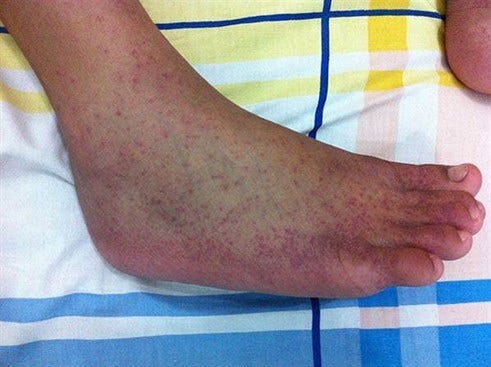CHIKUNGUNYA
.jpg?width=954&height=536&format=jpg&quality=80)
This article contains general advice only and is not a substitute for medical advice. Always seek a professional health care opinion.
ABOUT CHIKUNGUNYA
Chikungunya (CHIKV) is a crippling viral disease spread by an aggressive species of mosquito that causes arthritis in its victims. Its name is derived from an African verb ‘to become contorted’, which describes the contorted posture of its sufferers.
Where does it occur?
The Chikungunya virus is endemic in Africa, India and South-East Asia but outbreaks are emerging in other regions of the world including the Pacific Islands and even Australia.
What are the symptoms of Chikungunya?
Chikungunya virus symptoms begin to appear up to seven days after infection and typically last for several weeks.
High fever
Joint pain
Headache
Nausea
Fatigue
Skin rash
Joint pain can be severe and last for months and in rare cases, years.

Image sourced from: Nsaa on Wikipedia Creative Commons 3, with allowance to use on the condition of attribution. The original image can be found at http://commons.wikimedia.org/wiki/File:2012-01-09_Chikungunya_on_the_right_feet_at_The_Philippines.jpeg
What causes Chikungunya?
Female mosquitos contract the Chikungunya virus from infected humans and pass it on to their next human victim. In Australia, the Aedes aegypti is a domesticated mosquito found in Queensland and a vector for the Chikungunya virus. Its preferred habitat is dark spaces around the home and it is active in the day.
How do you prevent Chikungunya?
With no Chikungunya virus vaccine, mosquito control is the best method of protection. These mosquito control tips will help you protect your home and family.
Wear clothing that provides good coverage.
Apply a skin insect repellent regularly.
Avoid wearing too much perfume or aftershave.
Close windows and window screens when possible.
Discard water containers that act as breeding grounds.
Clear roof gutters and pot plants frequently.
Steer clear of stagnant water areas during peak daylight hours.
How do you treat Chikungunya?
If you develop symptoms after travel to endemic regions, seek medical advice immediately. There is no cure, but treatment helps soothe symptoms like joint pain.
Sources:
http://www.health.gov.au/internet/main/publishing.nsf/Content/ohp-chikungunya-fact-sheet.htm
http://www.abc.net.au/radionational/programs/backgroundbriefing/2013-07-21/4823184
http://access.health.qld.gov.au/hid/InfectionsandParasites/ViralInfections/chikungunyaVirus_fs.asp
Disclaimer: Mortein does not make any warranty that by using these products you will not contract the diseases referred to in this site. Use Mortein as part of a complete preventative plan and please still take caution. Seek a medical professional for further advice in regards to the above, especially if visiting prone areas.
